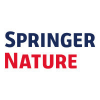Postdoctoral Researcher in Computational Genomics - Heidelberg, Deutschland - Springer Nature
Beschreibung
Postdoctoral Researcher in Computational Genomics - Causal Machine Learning for Gene Regulation:
- Employer
- European Molecular Biology Laboratory (EMBL)
- Location
- Heidelberg
- Salary
- Competitive
- Closing date
- 12 May 2024
- Discipline
Job Type
Postdoctoral
Employment - Hours
Full time
Duration
Fixed term
Qualification
PhD
Sector
Academia- You need to sign in or create an account to a job.
About the team/job
Our research group is pioneering computational methods for deciphering molecular variation across individuals, space, and time.
We have a track record in the development of computational methods for high-throughput omics data, machine learning for multi-omics integration and causal discovery.
Our interdisciplinary and international team is jointly located at DKFZ and EMBL Heidelberg, and is connected to the vibrant local ecosystem for data science, machine learning and computational biology in Heidelberg (including ELLIS Life Heidelberg and AI Health Innovation Cluster).
Your role
You will work in a team together with experimentalists and other computational
You have
- A PhD or equivalent qualification in computer science, statistics, mathematics, physics, and/or engineering, or a degree in biological science with demonstrated experience in computational and statistical development Experience with implementing machine learning or statistical learning (e.g. Bayesian inference, deeplearning) Programming skills in Python and experience with frameworks like PyTorch, Keras, Pyro or TensorFlow The Motivation and Dedication to lead a scientific project and you are a supportive, creative and responsible team member.
You might also have
Why join us
EMBL is curiosity-driven, community-oriented and international.
As an inclusive, equal opportunity employer, we believe that diversity enables us to collaborate more effectively and be innovative in our approaches.
We are, therefore, committed to creating an inclusive and flexible culture - one where everyone can realise their full potential and make a positive contribution to our organisation.
EMBL offers attractive conditions and benefits appropriate to an international research organisation with a very collegial and family-friendly working environment.
Competitive salary and social security benefits, financial support for relocation, a relaxed culture, professional development, an on-site nursery, canteen and other staff facilities make EMBL a great place to work.
What else you need to know
We are Europe's research laboratory for the life sciences - an intergovernmental organisation performing scientific research in disciplines including molecular biology, physics, chemistry and computer science.
We are an international, innovative and interdisciplinary laboratory with more than 1900 employees from many nations, operating across six sites, in Heidelberg (HQ), Barcelona, Hinxton near Cambridge, Hamburg, Grenoble and Rome.
Our mission is to offer vital services in training scientists, students and visitors at all levels; to develop new instruments and methods in the life sciences and actively engage in technology transfer activities, and to integrate European life science research.
Please note that appointments on fixed term contracts can be renewed up to 9 years in total, depending on circumstances at the time of the review.
Recent publications:
- Rohbeck, M., Clarke, B., Mikulik, K., Pettet, A., Stegle, O.
Intervention-Based Causal Discovery with Cycles. Proceedings of Machine Learning Research. 3rd Conference on Causal Learning and Reasoning accepted)
Moeed, A. et al. Identifying Effects of Disease on Single-Cells with Domain-Invariant Generative Modeling. Advances in Neural Information Processing Systems Velten, Britta, et al. Identifying temporal and spatial patterns of variation from multi-modal data using MEFISTO. Nature Methods (2022), 1-8. Kleshchevnikov, Vitalii, et al. Cell2location maps fine-grained cell types in spatial transcriptomics. Nature Biotechnology (2022): 1-11. Argelaguet, R., et al. Multi-Omics factor analysis disentangles heterogeneity in blood cancer.
Molecular systems biology :
e8124.
Mehr Jobs von Springer Nature
-
Dkfz Clinician Scientist Fellowships 2024
Heidelberg, Deutschland - vor 2 Wochen
-
University Professorship
Karlsruhe, Deutschland - vor 1 Woche
-
Doctoral Student
Berlin, Deutschland - vor 3 Tagen
-
Postdoc (F/m/x) legal Instruments for Healthy Soils
Leipzig, Deutschland - vor 3 Tagen
-
Phd Position in Materials Mechanics/numerical
Karlsruhe, Deutschland - vor 2 Wochen
-
W2 Professorship with Tenure Track to W3 in Animal
Hannover, Deutschland - vor 2 Tagen

